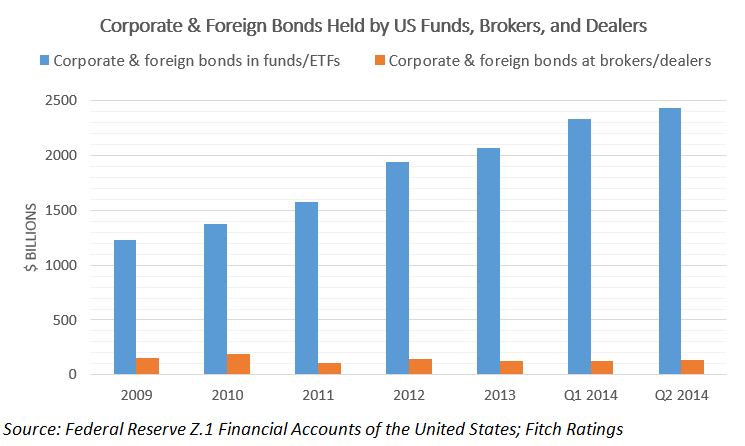Bond funds have not increased cash holdings despite growing fears of illiquidity in fixed income markets, according to Fitch Ratings.
The credit ratings agency said bond fund managers were too averse to the effects of “cash drag” on performance. Between 2007 and the end of June 2014, the average amount of cash and treasury securities held by US corporate and municipal bond funds increased only slightly from 10% to 13%, according to data from Lipper.
“Limiting cash drag may allow some fund managers to avoid underperforming their benchmarks for 2014, but it can eventually expose funds to bouts of market illiquidity and exacerbate fund losses during market shocks,” Fitch said.
Data from the US Federal Reserve, collated by Fitch, shows (below) that the value of corporate and foreign bonds held by mutual funds and exchange-traded funds has almost doubled in the past five years, while brokers and dealers hold roughly the same amount.
Fitch said more intermediary platforms were needed to alleviate this discrepancy.

“The unfortunate side effect of holding higher fund liquidity is fund underperformance, which could lead to net outflows,” Fitch said. “Neither situation—holding excess cash now or being exposed to illiquidity risk later—is optimal, but the dynamic represents a headwind.”
The agency said larger portfolios were most likely to feel the effects of falling liquidity—echoing the concerns of some smaller players in the fixed income market.
Related Content: Fresh Liquidity Warning from Bond Managers & The Changing Face of Corporate Bond Ownership
